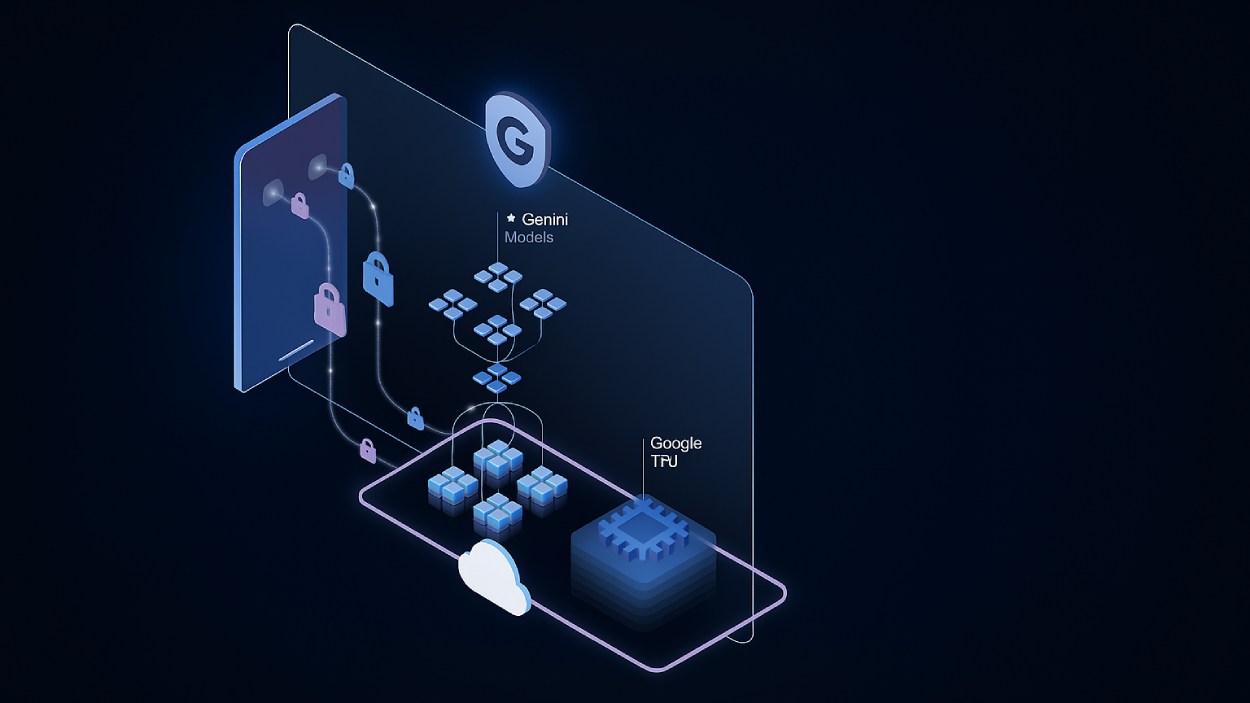Google has introduced Private AI Compute, a new platform that powers smarter AI features on Pixel phones using cloud-based Gemini models, while ensuring that user data stays completely private.
Quick Summary – TLDR:
- Google unveils Private AI Compute, enabling advanced AI features through the cloud with on-device privacy standards.
- The platform uses Gemini cloud models and Titanium Intelligence Enclaves for secure, isolated processing.
- Pixel 10’s Magic Cue and the Recorder app are the first to benefit, with faster, smarter, and more private experiences.
- Google plans to expand Private AI Compute to more AI-driven features and devices.
What Happened?
Google has rolled out Private AI Compute, a major step forward in blending the power of cloud-based AI with the privacy and security typically found in on-device processing. This new AI platform allows Pixel phones to tap into Gemini’s powerful models in the cloud without exposing personal data. The system promises to keep information fully private, even from Google itself.
Google makes Pixel 10 Magic Cue ‘more timely’ with cloud-based ‘Private AI Compute’ https://t.co/5xOBS35Vln by @technacity
— 9to5Google (@9to5Google) November 11, 2025
A New Approach to Secure AI Performance
Private AI Compute is Google’s latest effort to deliver AI-powered experiences that are not only intelligent and helpful but also built with privacy as a core design principle. The platform enables advanced AI tasks that go beyond the capabilities of current smartphone hardware by offloading them to the cloud without compromising privacy.
Here’s how it works:
- It runs on Google’s custom Tensor Processing Units (TPUs) within a tightly controlled architecture.
- The cloud environment is fortified by Titanium Intelligence Enclaves (TIE), which offer a sealed and encrypted space for processing.
- Data is protected in transit and isolated from external access, including from Google engineers or systems.
- Remote attestation protocols ensure that only verified sessions can interact with your device.
This technology is grounded in Google’s Secure AI Framework (SAIF) and adheres to its AI and Privacy Principles. The goal is to combine the best of both worlds: the artificial intelligence and performance of cloud computing, with the confidentiality typically reserved for on-device processing.
Real-World Impact on Pixel Features
The launch of Private AI Compute already brings noticeable upgrades to Pixel features:
- Magic Cue on the Pixel 10 is now more proactive, offering smarter and more timely suggestions by utilizing Gemini cloud reasoning.
- The Recorder app can summarize transcriptions in a broader set of languages, including English, Mandarin Chinese, Hindi, Italian, French, German, and Japanese, starting from Pixel 8 and newer devices.
These features demonstrate how cloud intelligence can enhance mobile experiences while maintaining strict privacy guarantees.
Technology with User Trust at the Core
Private AI Compute introduces several technical safeguards to ensure a trusted and secure environment:
- No Access Policy: Data processed in the cloud remains accessible only to the user.
- Encrypted Communications: Using Noise Protocol standards to secure data in motion.
- Confidential Sessions: Enabled by project-oak-based secure computing.
- Binary Authorization: Ensures only verified code is executed.
This foundation reflects years of research from Google’s AI teams in federated analytics, differential privacy, and confidential computing.
SQ Magazine Takeaway
Honestly, I’m impressed by what Google is doing here. With all the talk about AI and privacy these days, it’s rare to see a solution that genuinely bridges performance and protection. As someone who cares deeply about both tech innovation and user rights, this feels like the right direction. Private AI Compute isn’t just another feature, it’s a new foundation for AI on your phone. You get smarter suggestions, better tools, and still keep full control of your data. That’s the kind of progress we should demand from every tech company.


































































